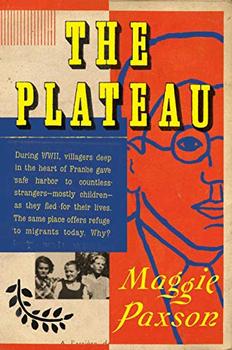Summary | Excerpt | Reviews | Beyond the Book | Readalikes | Genres & Themes | Author Bio

 Book Reviewed by:
Book Reviewed by:
Elisabeth Cook
Buy This Book
Chapter 1
Unanswered
I Daniel was grieved in my spirit in the midst of my body, and the visions of my head troubled me.
—Daniel 7:15
Let's just say that suddenly you are a social scientist and you want to study peace. That is, you want to understand what makes for a peaceful society. Let's say that, for years in your work in various parts of the world, you've been surrounded by evidence of violence and war. From individual people, you've heard about beatings and arrests and murders and rapes; you've heard about deportations and black-masked men demanding people's food or their lives. You've heard about family violence and village violence and state violence. You've heard these stories from old women with loose, liquid tears; from young men with arms full of prison tattoos.
There were men on horseback calling the boys to war, and long black cars arriving to steal people away in the dead of night; girls who'd wandered the landscape, insane after sexual violations; there was the survival of the fittest in concentration camps; there were pregnant women beaten until their children were lost and bodies piled up in times of famine; there was arrest and exile for the theft of a turnip; there were those who were battered for being a Jew or a Christian or a Muslim or a Bah‡''.
Let's say that, in the world of ideas that swirled around you, approximations were made of how to make sense of this mess: the presence of certain kinds of states; the presence of certain kinds of social diversity; the presence of certain kinds of religion. And let's say that the shattering stories had piled on over the years until, at some point, you just snapped. You wanted to study war no more.
As it turns out, it's harder to study peace than you might think.
Or it has been for me. I'm an anthropologist who spent years living among country people-mostly in a couple of tiny villages in Russia-asking basic questions about how memory works in groups. I had some ideas about how I might start a search for peace. After all, even though the stories of violence were many, for the most part people seemed occupied with other things: They worked in kitchens or fields, hauled water, made decisions about what to do based on the weather, ate with guests, cleaned up after livestock. Even if they bristled sometimes, people generally faced each other day to day with working problems and working solutions. There was love and there were revelries and heartbreaks. And in spite of what they'd seen in life, or what their very own hands might have wrought on their worst days, people saw themselves as basically decent, and expected basic decency back from the world.
Surely, there had to be ways of looking for that kind of eye-to-eye decency. Surely, there were ways to study its power and its limits, particularly when people were faced with tempestuous times. Were there communities out there that were good at being good when things got bad? In my research on memory, I'd studied practices of resistance and persistence. Could there be communities that were somehow resistant to violence, persistent in decency? I didn't know exactly what I was on to, but I knew I wanted to study it. In shorthand, I called it peace.
But peace was hard to find. I dug into contemporary scholarship in anthropology, sociology, and political science; I went through databases and bibliographies and talked to colleagues who had been in the trenches with me in the study of a tumultuous Eurasia, and to other colleagues in peace studies programs or peace institutes. What I found was this: There is vastly more contemporary social science on violence than there is on peace. And most contemporary empirical research that says it is about peace is really about conflict. About resolving conflict, cleaning up after conflict, about programs to bring aid to people in conflict settings. About law and justice within the context of conflict. On the whole, these literatures are about peace only insofar as they point to the suffering of millions, and lament.
Excerpted from The Plateau by Maggie Paxson. Copyright © 2019 by Maggie Paxson. All rights reserved. No part of this excerpt may be reproduced or reprinted without permission in writing from the publisher.





The Flower Sisters
by Michelle Collins Anderson
From the new Fannie Flagg of the Ozarks, a richly-woven story of family, forgiveness, and reinvention.

The House on Biscayne Bay
by Chanel Cleeton
As death stalks a gothic mansion in Miami, the lives of two women intertwine as the past and present collide.

The Funeral Cryer by Wenyan Lu
Debut novelist Wenyan Lu brings us this witty yet profound story about one woman's midlife reawakening in contemporary rural China.
Your guide toexceptional books
BookBrowse seeks out and recommends the best in contemporary fiction and nonfiction—books that not only engage and entertain but also deepen our understanding of ourselves and the world around us.